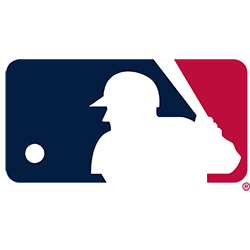An appeals court ruled last week that players in Arizona and Florida could join a class-action lawsuit over Minor League Baseball player wages, effectively expanding the scope of the proceedings.
The case Senne v. Office of the Commissioner of Baseball has been certified as class action. In a 2017 ruling, a U.S. Magistrate Judge determined that the case could proceed as class-action, but limited the focus to players who participated in a California league, instructional league or extended spring training. Players in Arizona and Florida were excluded from the case, which narrowed its scope considerably.
That decision has been reversed by the U.S. 9th Circuit Court of Appeals in California, which issued a ruling Friday determining that players in Arizona and Florida could be added to the proceedings. The lawsuit alleges that MLB has violated minimum wage laws, and might go to trial in the coming years to address back wages. Despite the presence of minor leaguers in the lawsuit, MiLB is not a party in the proceedings. More from the Los Angeles Times:
“They should be complying with those laws just like Walmart is complying with those laws,” said Garrett Broshuis, an attorney for the minor league players.
In 2018, after lobbying from Major League Baseball, Congress passed a law that guaranteed the federal minimum wage to minor league players — but only for a 40-hour work week, no matter how many hours the players might actually work.
The minimum wages in California, Arizona and Florida are greater than the federal minimum wage of $7.25 an hour.
MLB has argued that minor league jobs are akin to seasonal apprenticeships, and that a dramatic wage increase might mean a reduction in the number of minor league teams. MLB can appeal Friday’s ruling. The league did not comment.
MLB has traditionally viewed minor-league players as seasonal apprentices, making their pay exempt from minimum wage requirements. Attempts were made to clarify the law at the federal level until March 2018, when a spending bill signed by President Donald J. Trump specifically exempted minor league players from federal labor laws. That law is not retroactive, however, meaning that players could still seek damages from the period before it went into effect.
The lawsuit originally filed in 2014. MLB does have the right to appeal the 9th Circuit’s ruling, but representatives of the plaintiffs have cited last week’s decision as a major victory for their case.
“It’s a great result for minor league players everywhere,” Robert King, the Korein Tillery, LLC partner who argued the case before the Ninth Circuit Court of Appeals on behalf of the plaintiffs, said in a press statement. “It was a determined effort by our team at Korein Tillery and our co-counsel at Pearson, Simon & Warshaw. We look forward to prosecuting the case to trial.”
RELATED STORIES: Arizona Bill Would Exempt MiLB Players from Minimum Wage Laws; MiLB Player Union Being Considered; Recent California Court Ruling Could Affect MiLB Player Wages; Report: Spending Bill Could Exempt MiLB Players From Labor Laws; MiLB Player Wages Class Action Suit is Back; Plaintiffs Granted Appeal in MLB Wages Lawsuit; No Class Action for MiLB Player-Wage Lawsuit–For Now;Debate Rages Over MiLB Overtime Legislation; Legislation Would Exempt MiLB Players From Overtime Regs; Lawsuit seeks more money, freedom for Minor League Baseball players

